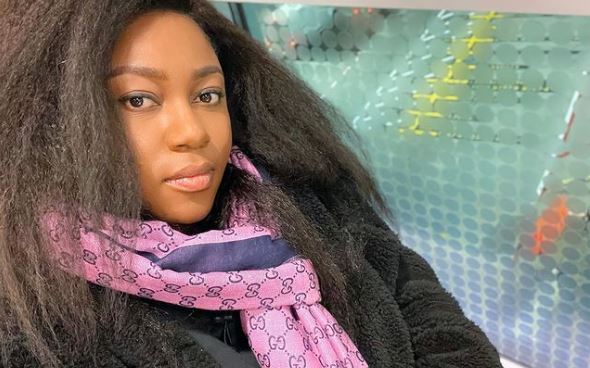
Nigerian accent is the new craze in town thanks to the influx of Nollywood movies. It has become common to hear people greet each other: “How are you now ohh.” or saying: “Oga now.”
With cheap DVDs flooding the market and TV stations fighting to attract viewers to their fold, Kenyans are now spoilt for choice.
Local viewers have watched Nigerian productions grow from poor quality whose main themes were voodoo to more realistic drama.
Most of the movies are low cost making distribution easy
Though lovers of the Nigerian movies say they can barely remember the titles, they say Nollywood has provided a break from western productions.
“I don’t really like the movies because they are predictable. I don’t hate them either. But it is very relaxing sometimes when you can relate to the movie you are watching better than Iron Man or Xmen,” says Jedidah Shiundu.
A viewer in Nairobi says they have even forgotten how to watch complicated Western fiction.
“The Nigerian movies are straight forward, you don’t have to rack your brain over the plot and the characters,” says the viewer.
Another viewer says the movies have provided an alternative to sometimes ‘boring local content’.
Fake accent
Yet another viewer says: “The movies have offered a different side of Nigeria. We hear of sectarian violence but some of the movies make it hard to believe such things happen there.”
Whatever the case, the movies seem to have become a hot commodity in families. One mother says her daughter has adapted the accent and ‘she won’t stop imitating Nigerian stars.’
“I have to wonder if she will outgrow it,” she says.
Lawrence Adera watches the movie but he cannot stand a Kenyan taking on the fake accent.
“I do not like the way Kenyans are picking up the accents because it shows the extent of the influence on us,” he says.
It is good to imitate their accent but let us learn from them to make our own creative movies to provide our young people with jobs. Our media stations should also promote the local stuff so as to encourage more and good production locally. The Kenyan production on HIV/Aids produced by Kenyans on the M-Net was fantastic which means if our movie makers are encouraged they can do wonders,” says Monicah Kalunde.
Grace Emily says the Nigeria movies have little showoff.
“Most of the movie do not have actors with fake American or British accent. The Pidgin language make the movies easy to watch,” she says.
About the accent: “I used to do the same and even used some of the words. It is because of bad influence although when one uses them in a tense atmosphere, it breaks ice and the people around laugh in most cases.”
Cosmas Mwakio says he likes the movies because most of them are ‘fit for family viewing’.
“The movies have provided us with a chance to sit together as a family,” he says.
However, Niceta Kaari is concerned that since the movies are screened as early as nine O’clock in the morning, her house girl has become lazy.
“She spends most of her time watching the movies and does little work in the house,” says Kaari.
Different opinions
Niceta also says her nephew who lives with her has picked the accent and worries the pidgin English may inhibit his learning of ‘proper’ English.
James Kwaye complains that he no longer has time to watch anything on TV since ‘my wife and daughters have taken over the remote control’.
“It has become hard to have family time or even go to church. My daughters now prefer going for afternoon services so they can catch up with the movies. Now, I worry they will stop going to church altogether,” he says.
George Mwasera says that his house has turned into a movie library. Some of the leading actors in Nollywood
“My son has started selling DVDs to neighbours. Though he doesn’t watch them a lot, he knows the latest in the market.
“Thank God for Nigerian movies, they are an escape from news where politicians dominate coverage,” says Grace.
According to analysts, many factors have contribute to the ‘storming’ of Nigeria movies in Kenya.
Low cost is among the factors. Most of the movies are for home video market and with as little as Sh50 shillings, one can get a DVD.
africa’s largest cinema
The other reason is market regulation. Although the Kenya Film Censorship Board is supposed to regulated productions coming into the country, the Nollywood productions seem to get in easy.
With technology, it is even harder to think the board can play any role.
“If there was heavy censorship, the material would still find it here because file sharing is easy on the Internet. All one would require is a flash disk or a memory card to copy various movies,” says Ian Kinoti, who owns a movie library in the city centre.
Nigerian cinema is Africa’s largest movie industry in terms of value and the number of movies produced per year.
Although Nigerian films have been produced since the 1960s, the rise of affordable digital filming and editing technologies has stimulated the country’s video film industry.
The movies are available in even the most remote areas of the continent. The last few years have seen the growing popularity of Ghanaian and Nigerian films among the people of African Diaspora in Europe, North America and The Caribbean. Nigerian films are currently receiving wider distribution as Nigerian producers and directors are attending more internationally acclaimed film festivals.
So is the Nigerian accent bound to grow in Kenya?
For some it is a phase like the one ushered by the Mexican soaps. For others, only time will tell.
—Additional information By Jenipher Wachie.



















